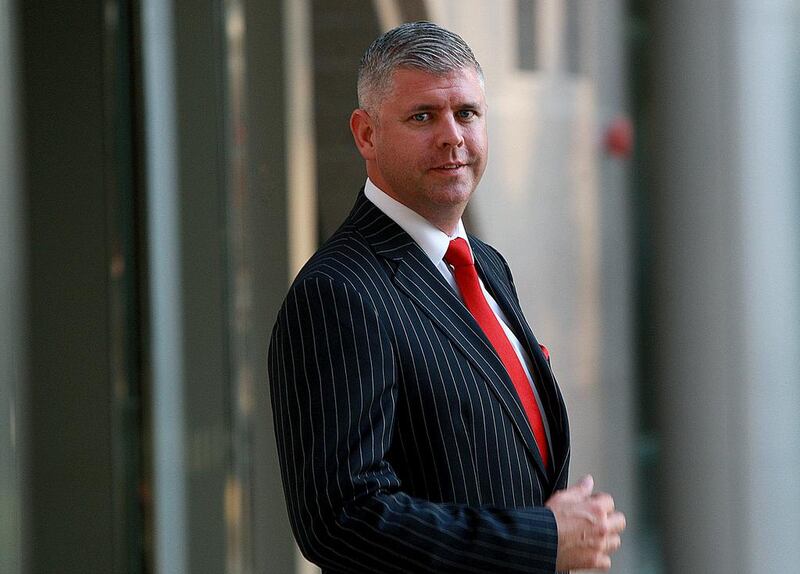Britain's once-proud banking industry appears to be in global retreat. Three of the big indigenous banks – Royal Bank of Scotland, Barclays and Lloyds – are either in the process of reviewing their non-United Kingdom businesses, or have decided to pare their overseas operations.
In the UAE, the three banks have pulled out of retail and other banking activities, or are planning to do so. The fourth member of this peer group, HSBC, is really a global bank that happens to have a London listing, but it too is scaling back its worldwide presence.
Andrew Bates sees this as an opportunity. He is the regional head of the Middle East and Asia at private bank Nedbank, the inheritor of the once-illustrious Robert Fleming & Co merchant bank.
Bates believes the retreat of the big British banks will only be good for his business.
“It gives us the opportunity to hire good people, and to take on customers. We will embrace them. We’ve grown by client attrition at the other banks,” Mr Bates says.
Not that Nedbank – an offshore British bank whose majority owner is South Africa’s Old Mutual investment group – will seek to replicate the one-stop banking solutions model the other British banks offered in the UAE.
Nedbank has no retail presence and no plans to establish one in the UAE, nor to bid for the branch businesses being sold by the others.
It focuses on a very specific but lucrative segment of the banking market in the UAE.
“The minimum net cash required to open an account with us is US$75,000, but the average is $500,000. Accounts can run balances much higher than that. We recently won an award for the best manager of wealth in the $1 million to $20m range,” says Mr Bates.
Most of his customers in the UAE fall into the “western expat” category – internationally mobile expatriates who have worked much of their careers and reached the upper levels of their profession in low-taxation environments.
“They want choice of where to invest their wealth, but above all they want high standards of personal service. We pride ourselves on this,” he says.
Mr Bates has chosen the same sort of career path as many of his customers. He worked for Lloyds in Miami for 12 years, serving high-net-worth individuals, before moving back to Britain, though with increasingly frequent visits to the Middle East.
"I was following the clients, really. A number of them saw opportunities in the Middle East, so we decided it warranted a permanent presence here. We got a licence from the Central Bank in 2011," he says.
“Dubai is a key geography for a business in our position. The South Africa connection is important, and customers are also interested in Asian markets.
“So in the UAE we’re equidistant from those three big markets, while maintaining a London link.”
Around 5 per cent of his client base consists of Emirati customers, a number which he hopes to grow, with the balance comprising other nationalities that make up the UAE’s cosmopolitan population.
Although Nedbank has no branch network, customers can get the full range of banking products – accounts, chequebooks, credit cards and an integrated online service called the “focus account” to oversee the whole process of wealth management.
Most new customers come from word-of-mouth referral from the informal network of lawyers, accountants and other financial professionals in the UAE.
Once signed up, customers find themselves in the “open architecture” model used by Nedbank.
"We can offer them our own products and services, or they can use the 'infinite suite' or products that exist in the market. If they want Sharia-compliant investments, we can advise on that too," says Mr Bates.
Many customers begin with an interest in prime UK property investment, for example, but then branch out into debt management, mortgages, estate planning and other investments.
“We really want to offer stability, security and growth, so we offer all manner of vehicles,” Mr Bates says. “Some customers feel comfortable in cash, but in an age of rising inflation that presents its own problems. We work out the individual’s risk appetite and advise accordingly.”
Most customers opt for a mix of asset classes, including gold, equities, fixed-income and commodities. Mr Bates says gold offers “relative value” at the moment, but it is not cheap.
Would he advise customers to invest in local real estate?
“My feeling is that there are more cash buyers in local property now, and that makes for a healthier market. I might even invest myself over the next 12 months,” says Mr Bates, who moved his family to Dubai four months ago.
Despite the withdrawal of major British players from mainstream banking in the UAE, the private banking market remains competitive.
Coutts, perhaps the best-known brand in global wealth management, has been aggressively marketing here, and the wealth management arms of all the big European and American banks are attracted by the huge pools of capital available in the region.
“I’d like to think we lead by standards of service. We put the client at the centre of everything,” says Mr Bates.
fkane@thenational.ae





